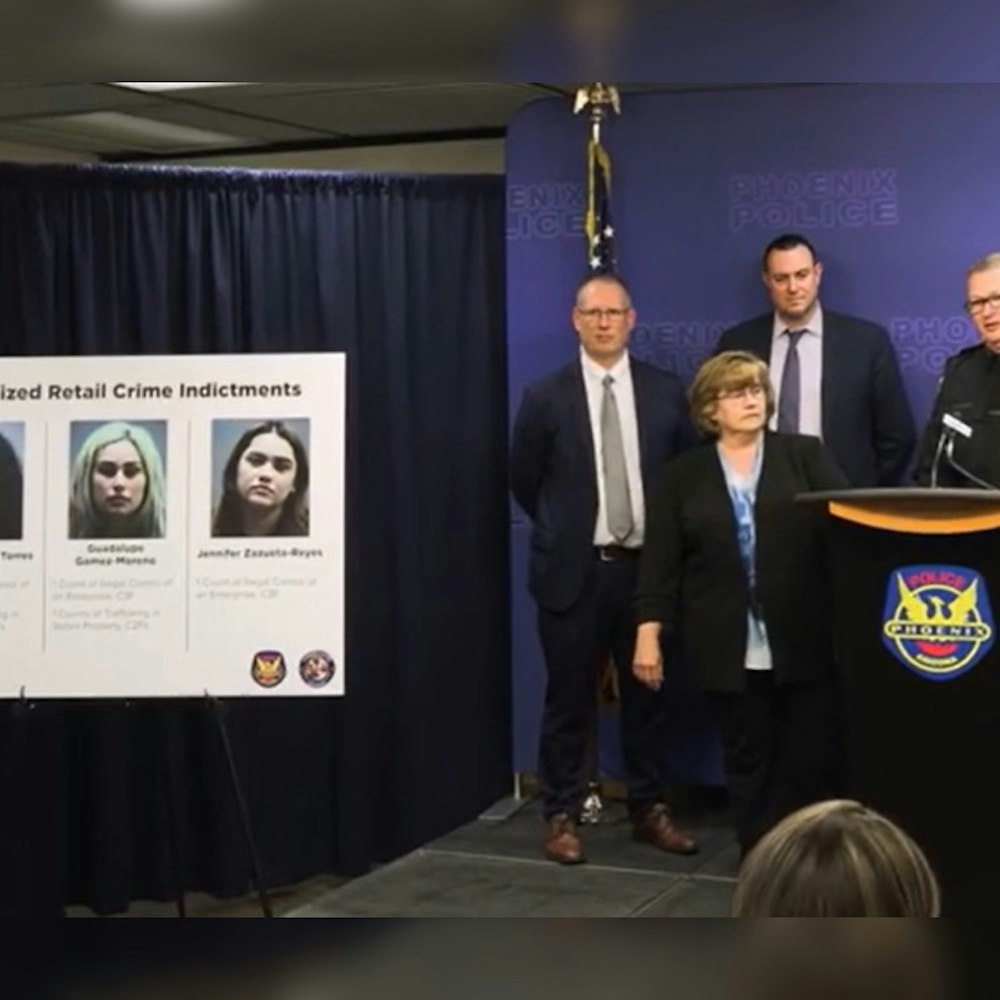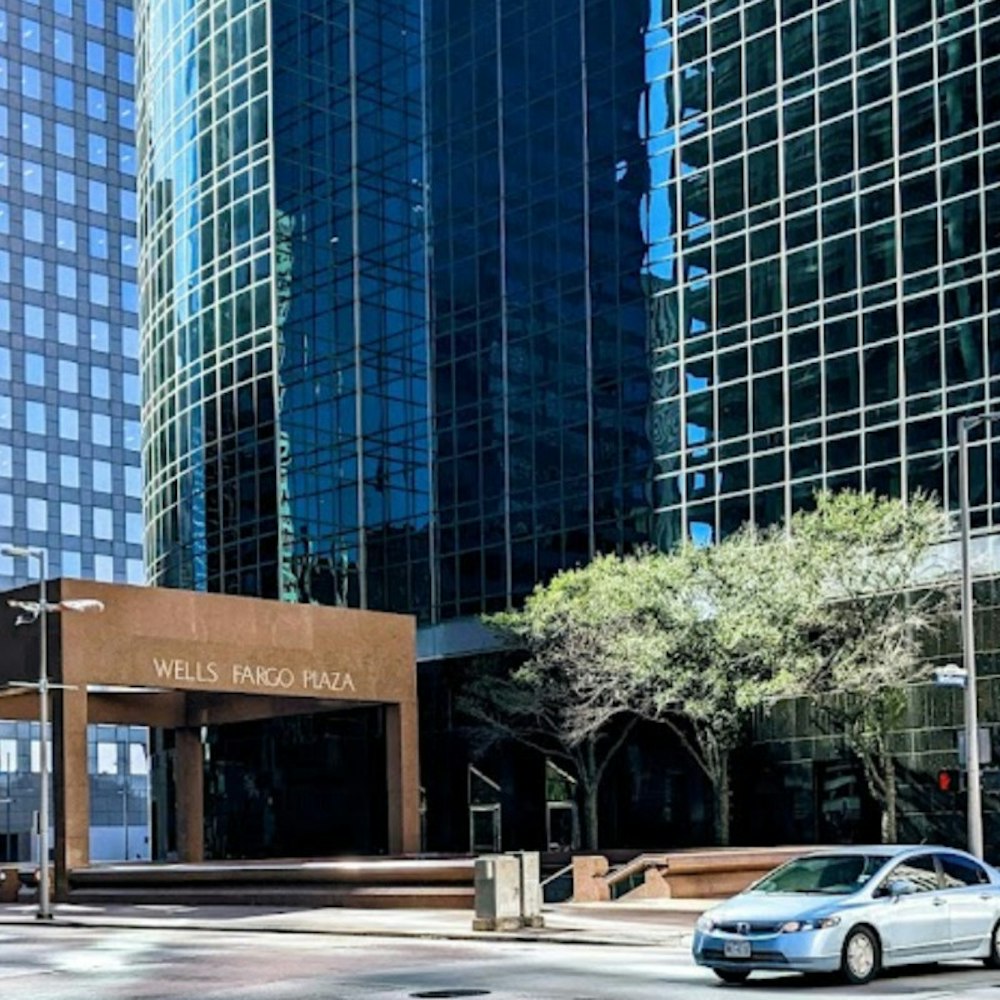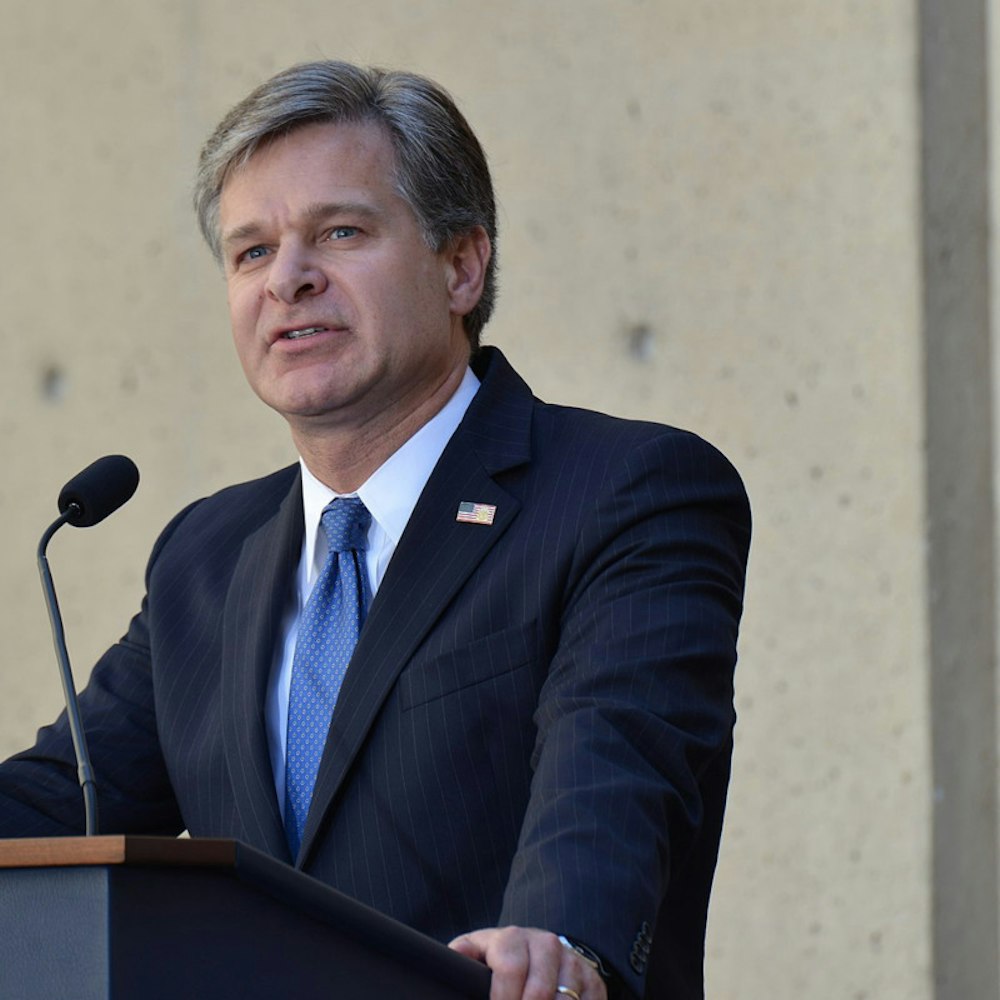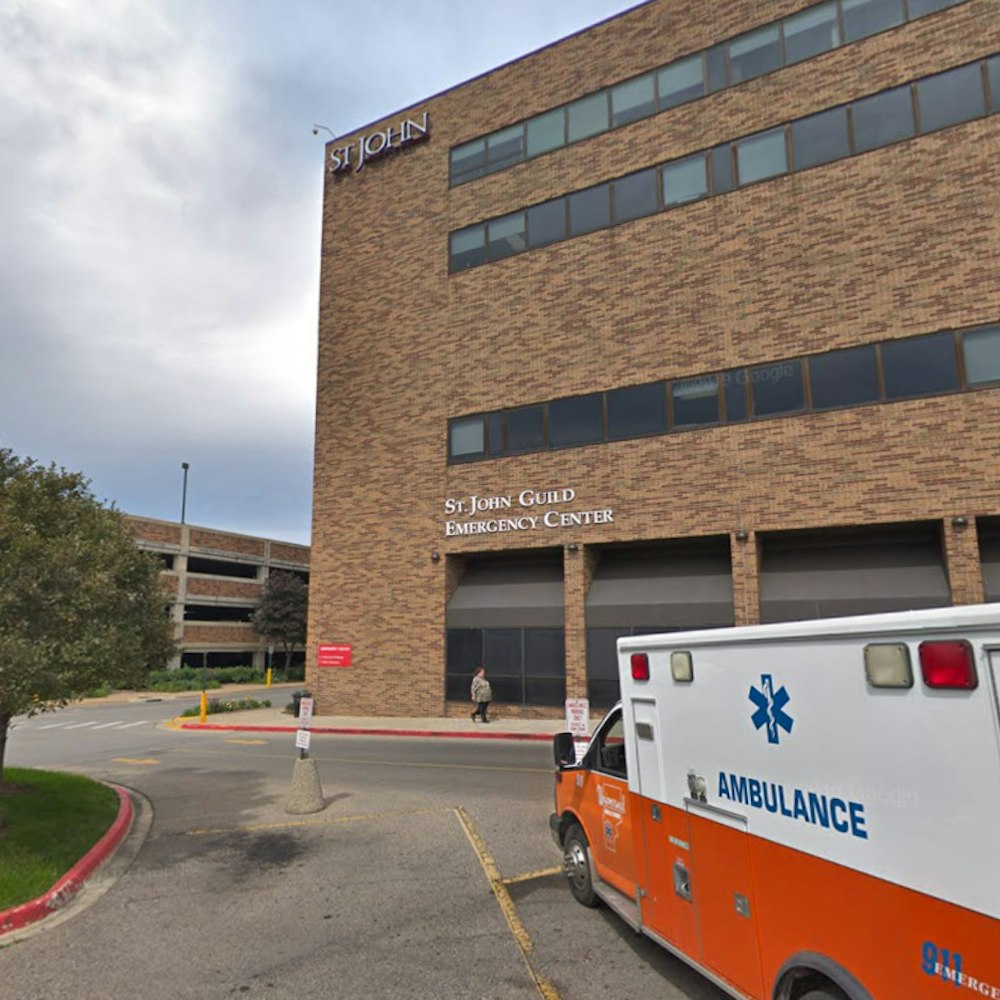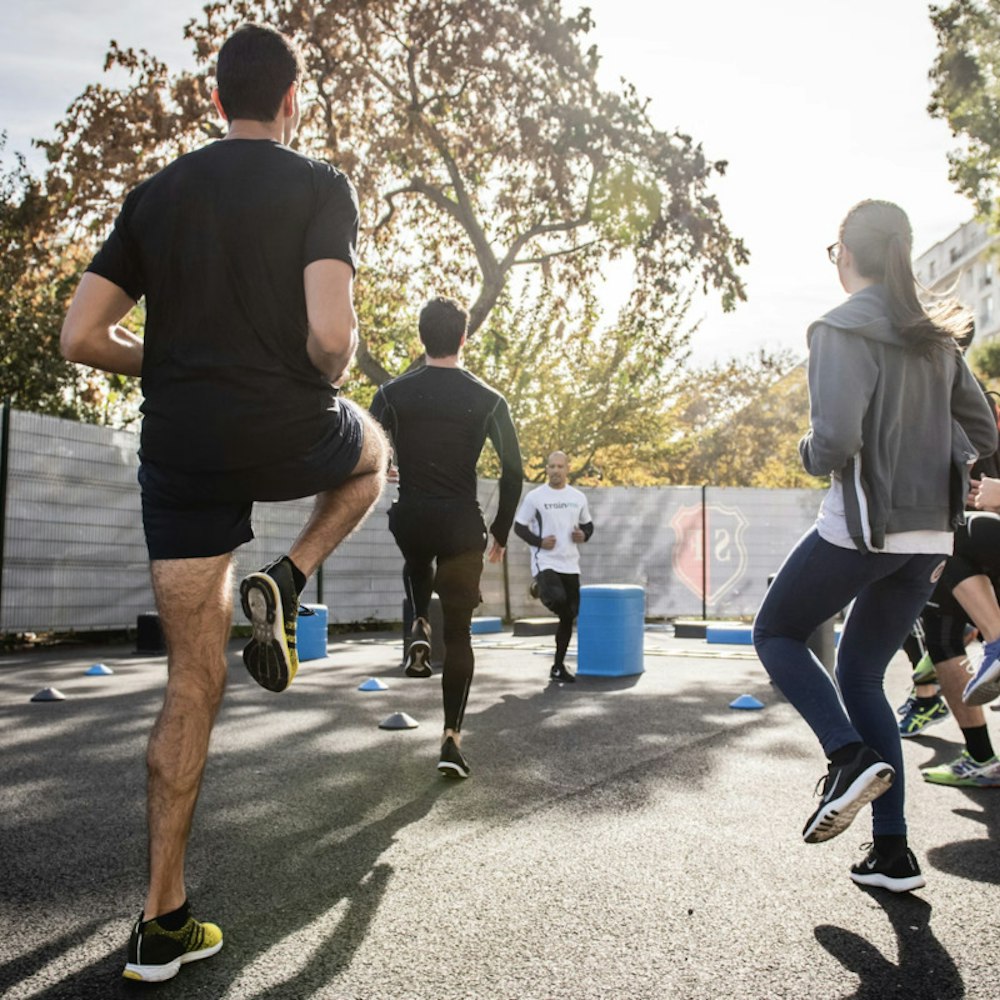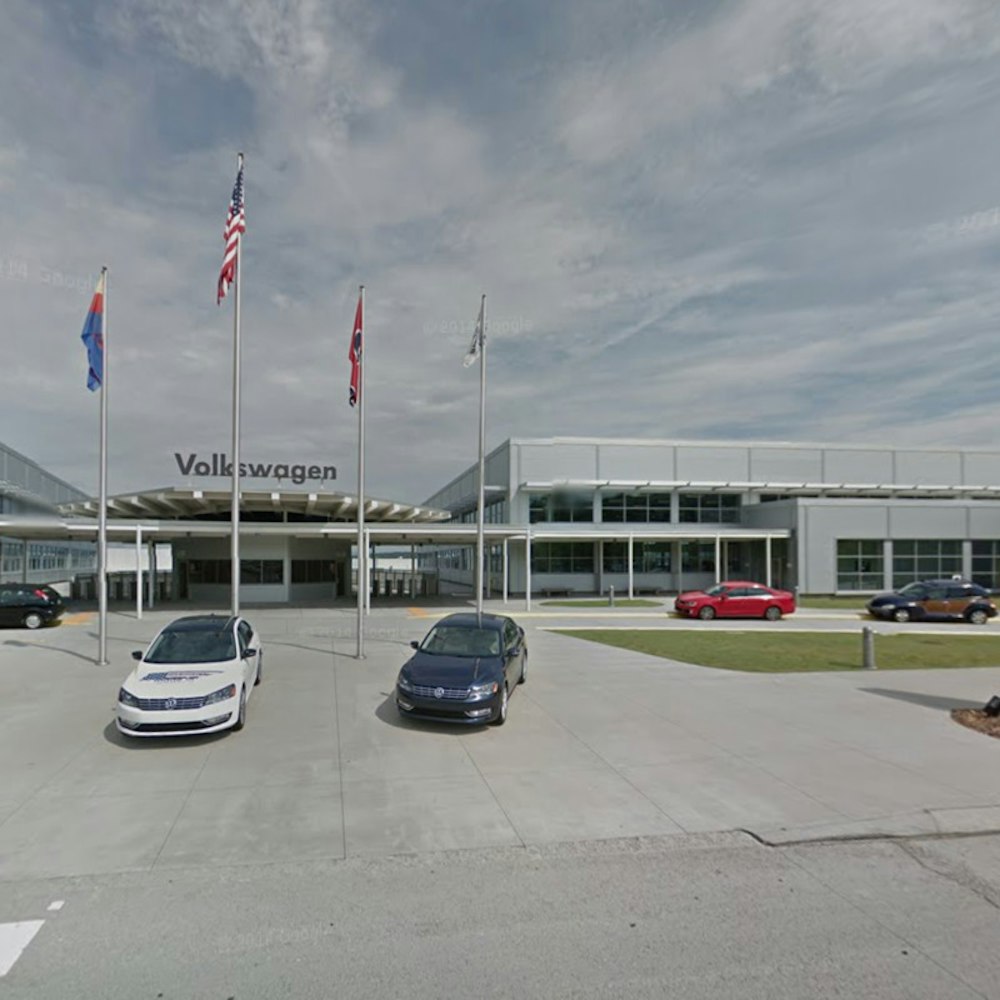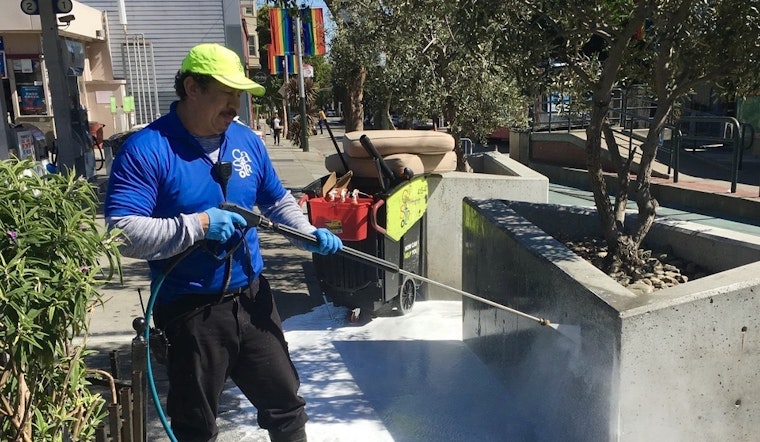
Every 15 years, San Francisco's community benefit districts (CBDs) must undergo a renewal period, in which area property owners vote on whether they want to continue paying an additional tax to the CBD.
The money goes to fund improvements to the Castro beyond what the city can provide, like additional street cleaning, trash removal, beautification, public safety workers and neighborhood marketing.
This year, the Castro/Upper Market Community Benefit District (Castro CBD) is facing its first renewal period. Formed in 2005, it will continue for another 15 years — until 2035 — if its renewal is approved in two weeks' time.
If passed, the renewal will also expand the CBD's territory by about 5%, to 28 full or partial city blocks and 586 parcels of land. New additions will come from 16th, Sanchez and Church streets, as well as the complete Harvey Milk Plaza.
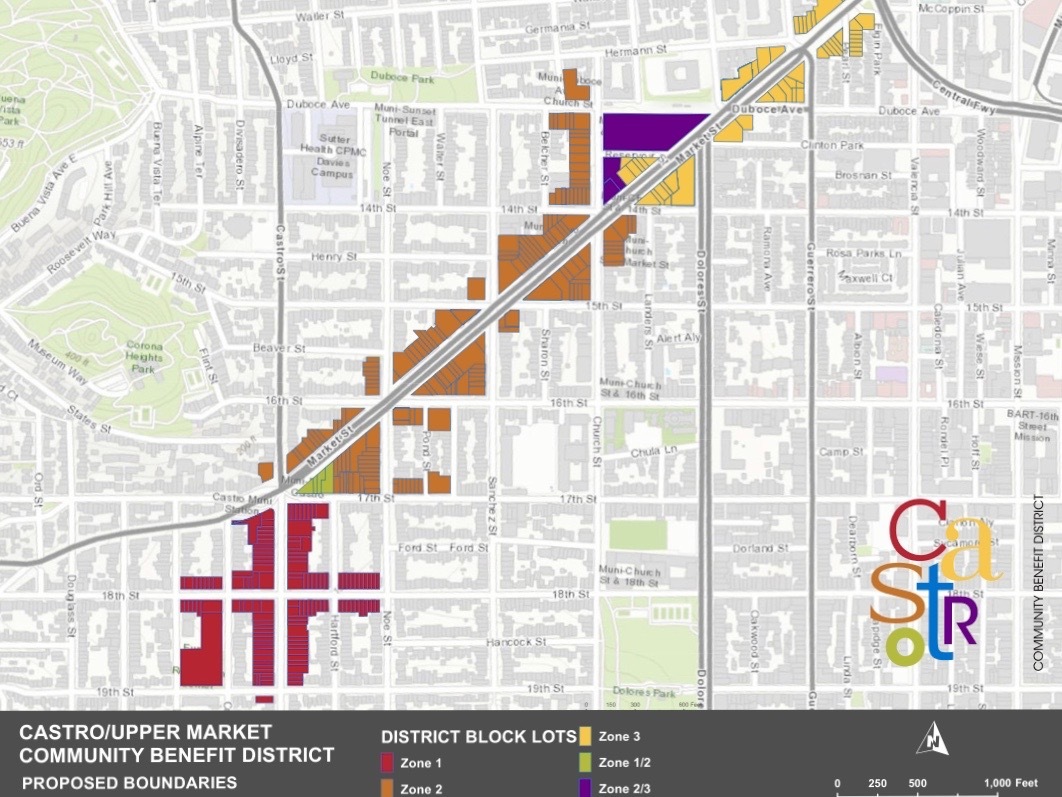
For the unacquainted, the CBD is funded through an assessment fee on property owners in its designated area, based on a formula calculated using linear frontage, building square footage and lot size.
The CBD already cleared its first hurdle to renewal earlier this year, when it met the required 30% petition approval threshold needed to move on to the election period.
Election packets, with ballots and financial information, were sent out to property owners at the end of May. The deadline to vote is July 14, and ballots will be counted at a Board of Supervisors hearing the same day.
For the CBD to be renewed, at least 51% of the weighted assessment must be approved. The larger their assessment, the more sway an individual property owner has in the vote.
If the vote fails, the CBD will be forced to dissolve on December 31, 2020, and return the property owners' remaining money.
Despite the financial pressures of the COVID-19 pandemic and resulting recession, executive director Andrea Aiello is confident that the CBD will be renewed.
"Even during this very difficult time, property owners in the Castro — many of whom are small property owners — are voting yes," said Aiello, who's been with the CBD since 2007. "They understand the value they get from the CBD, and are voting to continue paying the assessment fee."
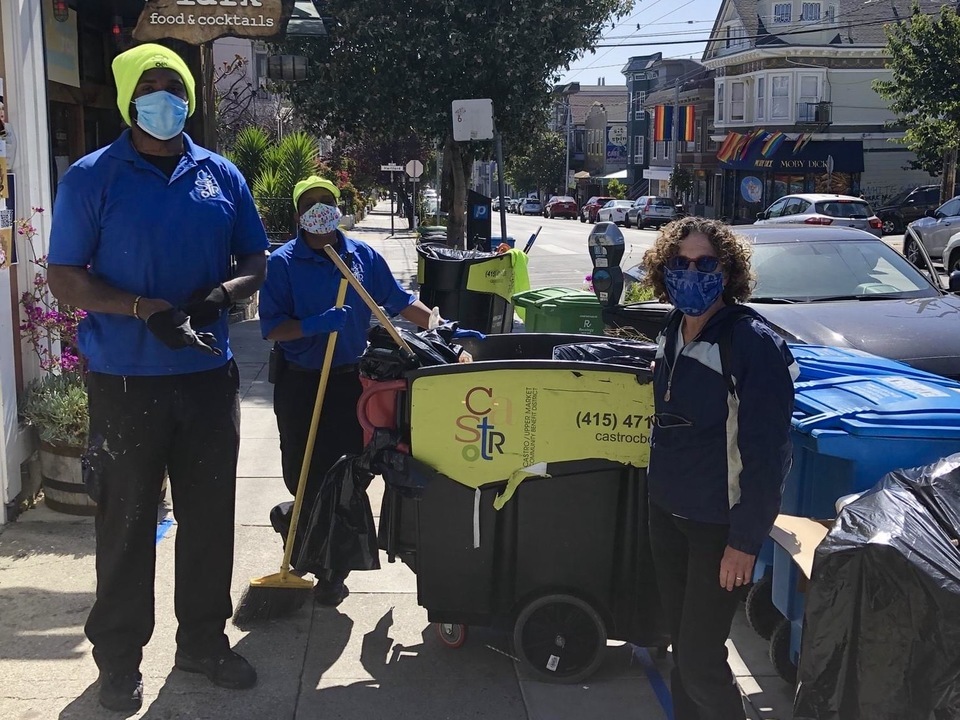
In its first 15 years, the Castro CBD collected $6,409,866 in assessments from property owners. That was supplemented by $2,185,465 in grants and $600,458 in donations, merchant sponsorships and contracts for services.
Earlier this year, the CBD commissioned a study on the ongoing brick-and-mortar retail crisis in the Castro. The study concluded that local merchants had three major requests, one of which was improving public safety.
But public safety services are notably absent from the CBD's new budget. Previously, the CBD had hired an officer from the San Francisco Patrol Special Police to patrol public spaces, including Jane Warner Plaza, Harvey Milk Plaza, the bikeway behind Safeway and public restrooms.
According to financial documents, the CBD paid the officer $98,974 in 2019. $16,000 of that came from assessment fees on property owners; the remaining $83,000 came from an Office of Economic and Workforce Development (OEWD) grant and donations to the Castro Cares program.
Aiello said that public safety remains a top priority. But she noted that the current service isn't provided equitably across the district — it mainly centers on the area near 18th and Castro streets.
"We wanted to get away from the idea of providing public safety in only one part of the city," Aiello said.
Currently, the CBD is working on securing $250,000 in public safety funding through the OEWD grant and fundraising. If the CBD can raise that amount, it plans to not only keep the current level of service, but expand it to other corridors.
But the OEWD grant is uncertain, due to the city's estimated $1.7 billion budget deficit. It won't be considered for approval until the city goes through its annual budget process in August and September.
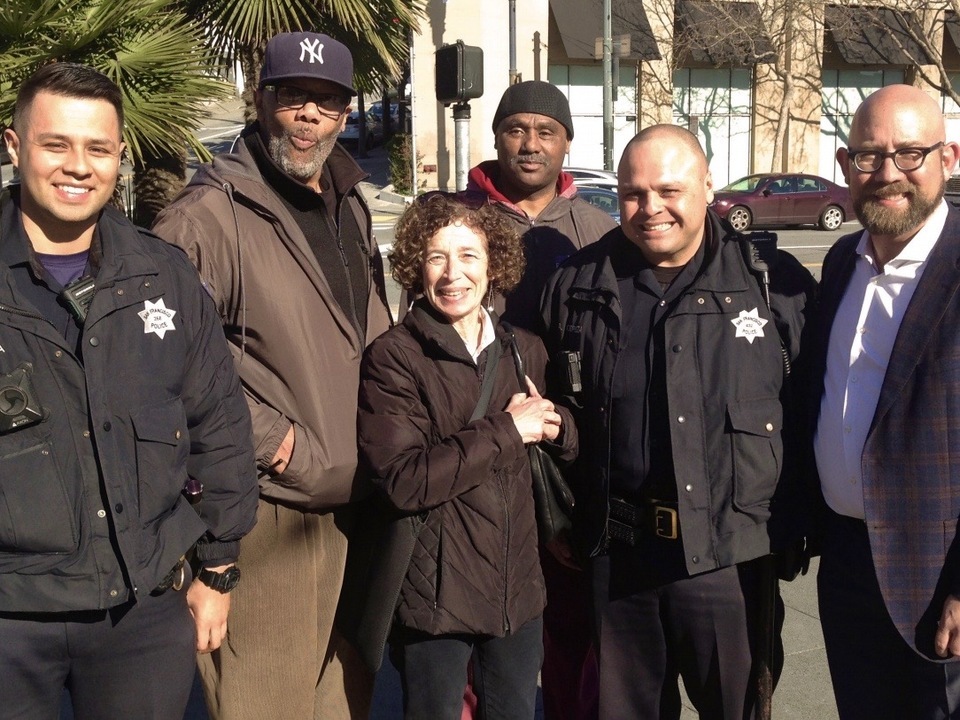
District 8 Supervisor Rafael Mandelman, who represents the Castro, expressed concern that the OEWD grant might not go through.
"We need to find some way to pay for enhanced security in the Castro," he said. "That's a priority for me in the budget — and this is a really hard year to get any priorities through the budget."
If the grant doesn't come through, the CBD will only be able to fund its Patrol Special Police Officer, Cody Clements, through the end of 2020.
Should that happen, "I think the quality of life [in the Castro] will go down dramatically," said Clements, who took over from the late John Fitzinger in 2017. "We're out there seven days a week, working hand-in-hand with SFPD."
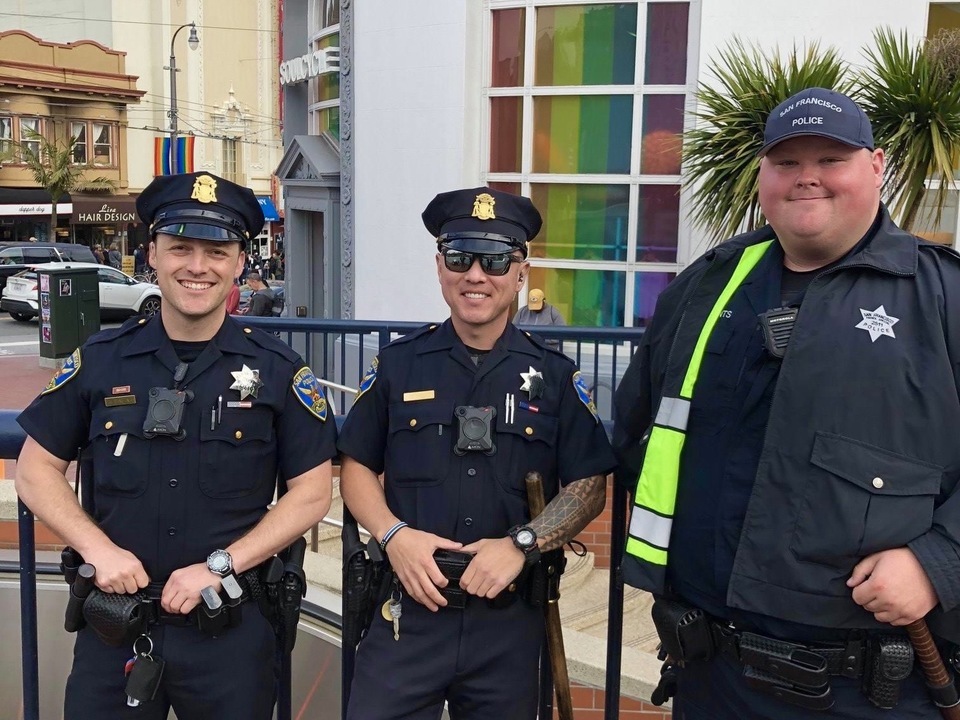
The proposed Castro CBD Management Plan also delineates other budget priorities for the CBD, which plans to spend $866,274 in the 2020-2021 fiscal year.
95% of that money will come from the assessments on property owners, with the remaining 5% through donations and sponsorships. Aiello says she's adjusted the budget — previously $1.1 million — out of the expectation that she'll receive little in the way of grants, given the recession and the city's budget crisis.
"Everything we promise that we're going to be providing is legally bound; we can't provide less," said Aiello. "We couldn't promise anything that was dependent on grants."
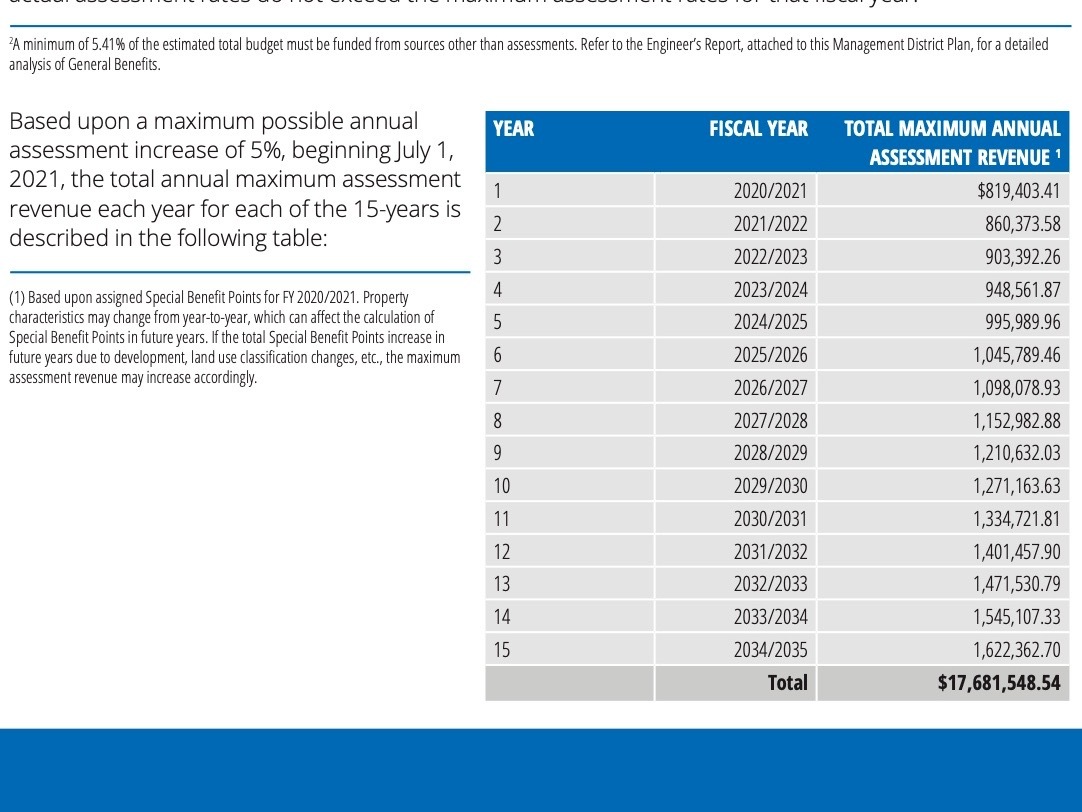
Two-thirds of the proposed budget — $582,483 — will go towards cleaning services like trash pick-up, power-washing, sidewalk cleaning, needle collection, and graffiti removal. Steam-cleaning will be expanded from four to five days a week.
All of that work is very necessary. The CBD's data for fiscal year 2018-19 shows that its cleaning crews collected 128,470 pounds of trash and 2,259 dirty needles. They also responded to 3,082 reports of human feces, and removed 13,725 pieces of graffiti.
The cleaning crews, contracted through Block by Block, are set to receive a modest pay increase next year, from $19/hour to $19.50/hour. That's still the lowest hourly wage for a San Francisco CBD cleaning crew, Aiello said, noting that other CBDs have been competing hard for cleaning workers who largely commute from the East Bay.
"We have an incredibly strong team right now that works in the Castro," she said.
After being pulled back for the first two weeks of the shelter-in-place order, the cleaning crews are currently back to working seven days a week, adhering to social distancing and safety guidelines.
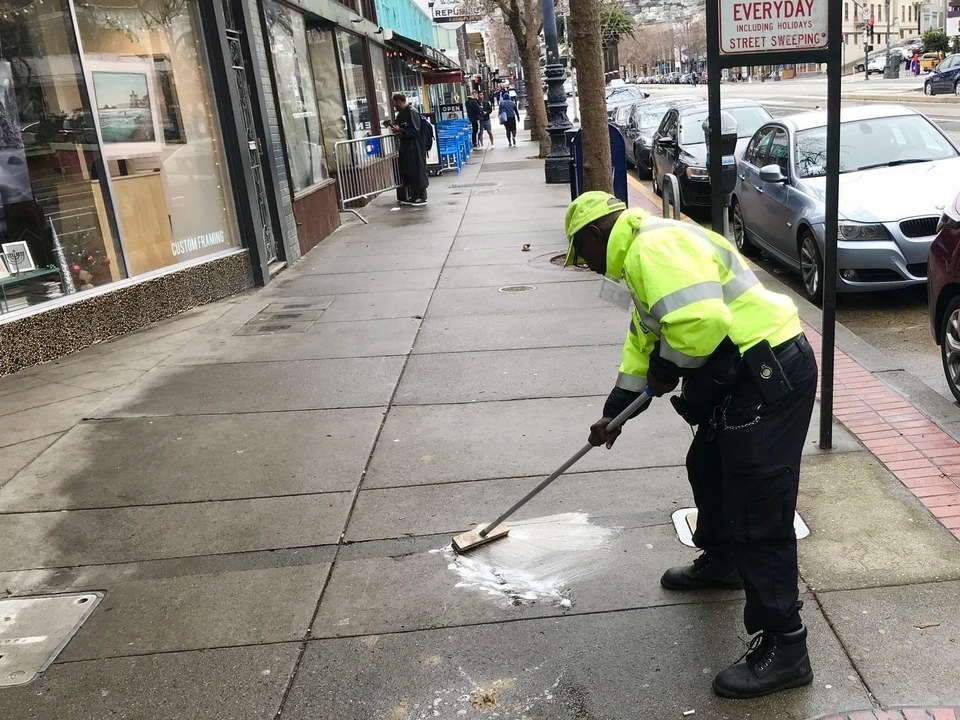
Once the cleaning crews are accounted for, the remaining third of the CBD's budget will largely go to administrative fees, with $272,349 allotted to paying rent on its office, staff salaries, and accounting.
3% of the budget will be set aside for a contingency reserve, with the remainder going to marketing ($9,000) and landscaping ($2,500).
Of course, if any city grants are approved, the budget will increase, Aiello said. But in order for the CBD to provide the same services as the previous year, it would need to have $1.4 - $1.5 million in the budget.
Aiello feels she can't lean any further on assessment fees, which are already set to increase nearly 53%. Thanks to COVID-19, the neighborhood's smaller property owners may be facing difficulties paying their property taxes, though Aiello says no one's brought it up to her as of yet.
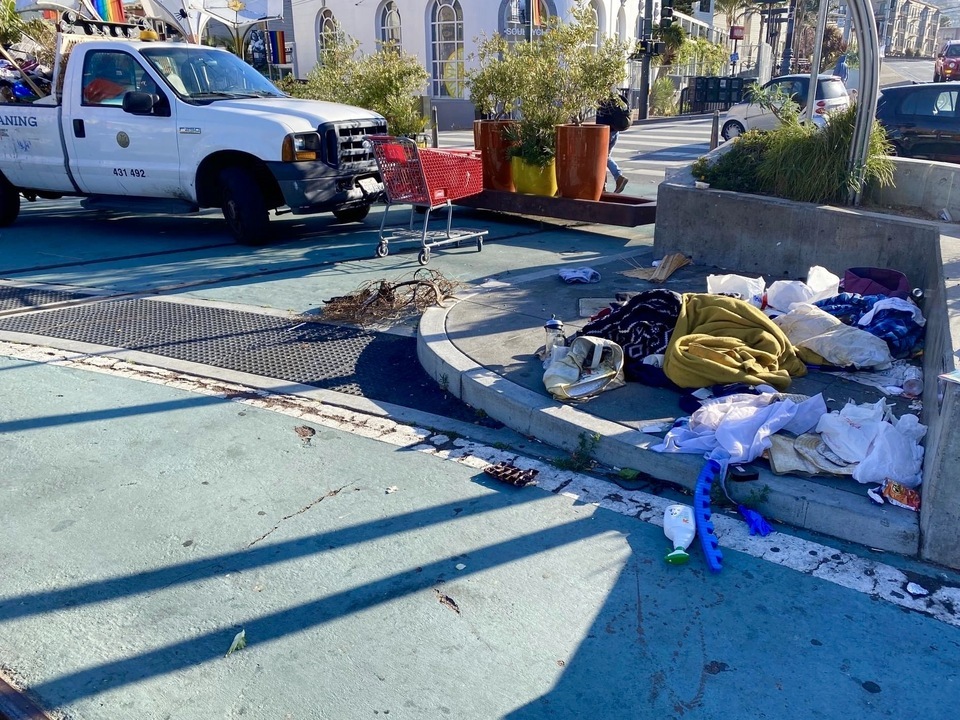
Asked to highlight the CBD's best work in its first 15 years, Aiello pointed to the Castro's improved sidewalk cleanliness and the Church and Duboce Street Track and Street Improvement Project, which revamped a major cycling and transit corridor.
She's also proud of her efforts lobbying for the 2013 Castro Streetscape Improvement Project, which included the SF History Walk, rainbow crosswalks and LED streetlights.
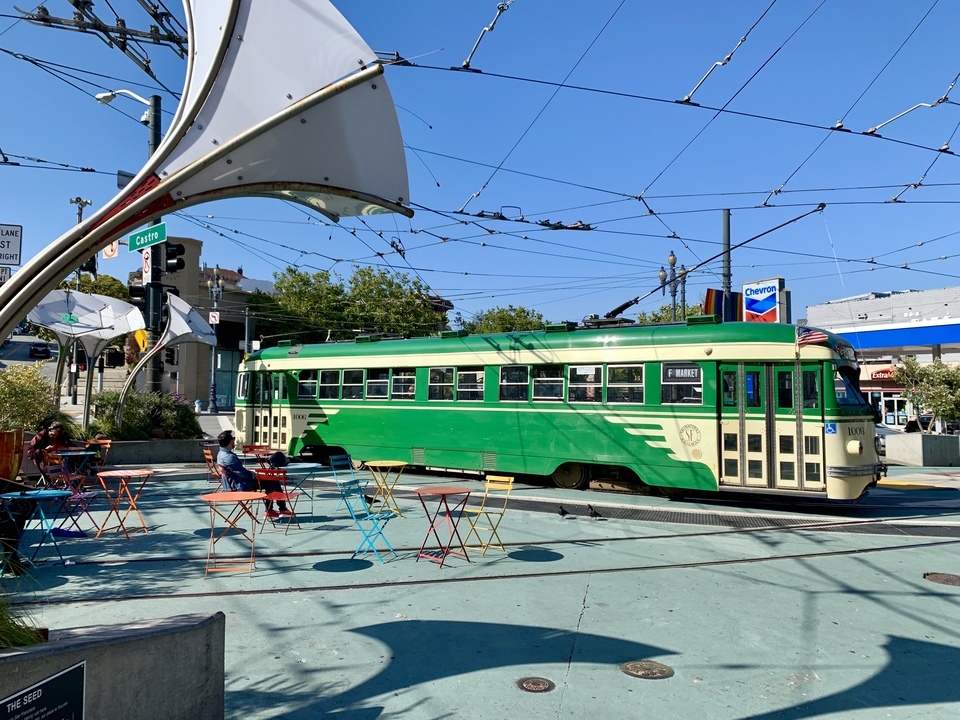
And she expressed pride in how far Jane Warner Plaza has come.
"I know it gets a bad rap," she said. "But when it's activated, it's enjoyed by tons of people — residents and tourists alike."
